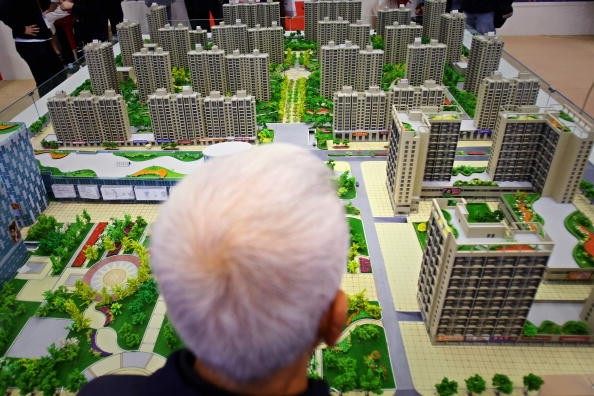Even as China's economy continues to grow steadily, the country's vigorous real estate market is showing signs of settling down, thanks to a succession of direct measures. According to experts, recent tough moves have been effective in arresting the spiking housing prices, in addition to regulating the market.
Figures released by China's National Bureau of Statistics showed that home prices in tier-I cities like Beijing plus large tier-II throughout the country edged in 0.5 percent and 1.3 percent respectively in October compared to that in September. At the same time, the growth rates were 2.8 percentage points and 1 percentage point lower respectively compared to that in the previous month.
This trend was reinforced by sales of second-hand residential property, while prices of existing homes in tier-I and tier-II increased 0.6 percent and 0.8 percent respectively during the same period. On the other hand, the growth rates were 2.9 percentage points and 1.1 percentage points lower respectively compared to September.
The bureau released the data soon after the different local governments introduced several initiatives to contain speculative housing purchases, restrain asset bubbles risks as well as stabilize the market. In fact, several Chinese cities have modified market rules, which include higher deposits and additional restrictions, Xinhua reported.
The trends were a result of the milder price gain due to the recent policies introduced by various local governments with a view to control rising property prices, the publication reported quoting NBS senior statistician Liu Jianwei. Meanwhile, a Tsinghua University professor Liu Hongyu told the agency that the long-term policy effects still needs to be observed closely.
As the tightening moves started having the desired results, sales volume for new as well as existing homes maintained a more rapid downward trend during November. According to Cheng Yun, a senior analyst at top Chinese real estate agency Centaline Property, the ripple effects were seen even in cities where they are yet to be implemented.
Xia Dan, a senior researcher at the Bank of Communications, which is among China's five leading lenders, echoed Yun's views. According to the report, Dan had predicted that sale volumes of residential property would decelerate further in November.
Watch China's real estate bubble below:



























